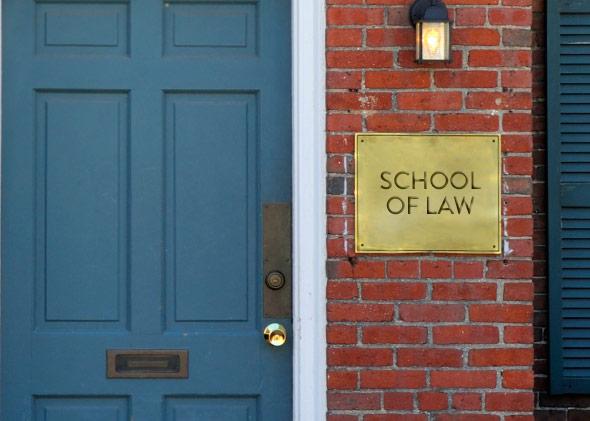Recently, two law schools announced that they will begin accepting a select number of students who have not taken the LSAT, the much-loathed exam that has traditionally served as the make-or-break measuring stick for J.D. applicants and punctuated the academic career of many an aimless history major. As Bloomberg Business reported last week, “The State University of New York-Buffalo Law School and the University of Iowa College of Law said they would admit students from their respective undergraduate colleges” based on their grades and scores on other standardized tests. They’re the first institutions to pounce on a major rule change by the American Bar Association that will let law schools start filling 10 percent of their classes with non-LSAT takers who meet other academic requirements. But chances are that other schools will follow suit.
Mostly, this is yet another example of just how desperate law schools are to fill their classroom seats. Enrollments have plunged—Buffalo’s first-year class has shrunk 18.3 percent since 2011, while Iowa’s is down 21.7 percent—and that has created financial stress on institutions. Buffalo’s dean says the changes are aimed at saving qualified students the pain and expense of taking the LSAT (the test requires a $170 fee, and usually a pricy prep course) but admits to Bloomberg that it might also help goose applications, “to the extent that they remove what is, for some students, an obstacle for applying to law school.”
This is all very problematic.
I doubt that Buffalo or Iowa will end up admitting significantly weaker students as a result of these changes. Theoretically, it might let them recruit students who would have tested poorly without hurting their all-important ranking in U.S. News, which factors in LSAT scores. But the new ABA rules are still reasonably strict about academics. Law schools can only admit LSAT abstainers if they obtained a bachelor’s degree at the same university or are applying to a joint degree program like a J.D./MBA. They also need a decent GPA and strong scores on either the SAT or a grad-school admissions test like the GRE. We’re probably not talking students who would typically fill out the bottom of Buffalo’s 1L class.
The real issue is that applying to law school shouldn’t be convenient. It should be hard—about as hard as possible, in order to scare off the kids who don’t really belong. I don’t think I can make this point better than Elie Mystal already has at Above the Law, but in short: Going to law school is a wildly expensive, life-altering choice that can lead to years and years of misery (even if things go well). Most people shouldn’t go unless they really, truly want to be a lawyer, or have a crystal clear idea of the alternative career that a law degree is going to land them.1 And if you don’t want it badly enough to take the LSAT, chances are you don’t want it enough to spend three years of your life amassing tons of student debt to pursue that goal, either. As Mystal writes, if “you can’t be bothered to spend $170 for a test, then you shouldn’t be allowed to borrow $150,000 for a degree. Anybody who tells you different is trying to sell you something.”
1 In which case, I still say now is a great time to go.
